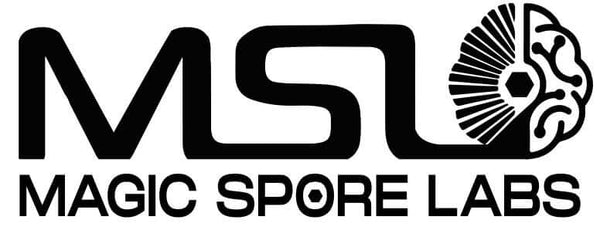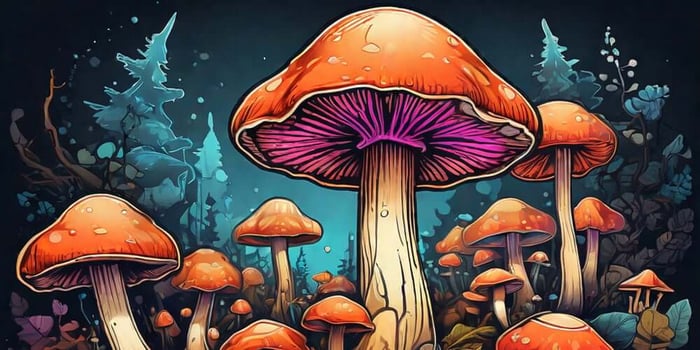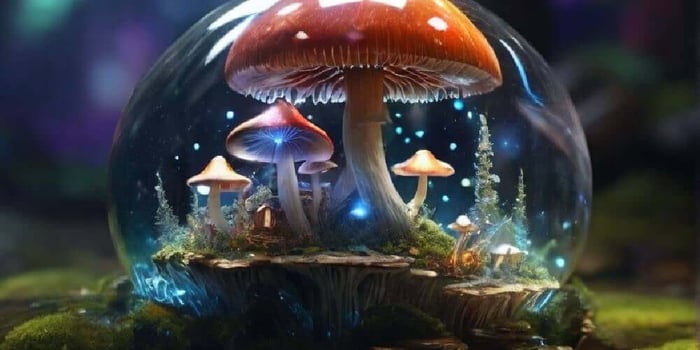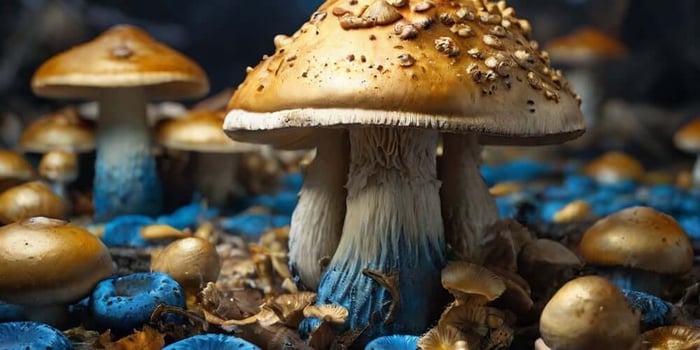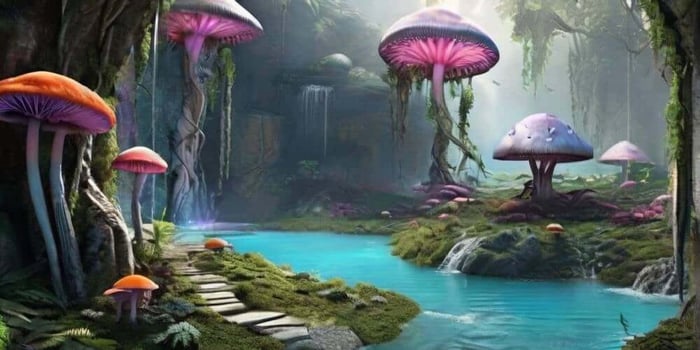Mushrooms have intrigued and fascinated humans for centuries. They are a diverse and enigmatic group of organisms that can be found in various shapes, sizes, and environments. While many mushrooms are a culinary delight and an integral part of countless cuisines worldwide, some have gained notoriety for their psychotropic properties, leading to legal ambiguities and complexities. In this article, we will explore the legality of mushrooms, focusing on the dichotomy between magic mushrooms and liquid spores.
The Legal Landscape of Magic Mushrooms
Magic mushrooms, also known as psilocybin mushrooms, have a long history of traditional and recreational use. They contain a naturally occurring psychoactive compound called psilocybin, which has led to their classification as a controlled substance in many countries, including the United States. In the United States, magic mushrooms are listed as Schedule I substances, indicating that they are considered to have a high potential for abuse and no accepted medical use.
However, the legal status of magic mushrooms is not uniform across the globe. For example, in recent years, some states in the U.S. have decriminalized or legalized the possession and use of magic mushrooms for personal use or therapeutic purposes. In 2020, Oregon became the first state to legalize the regulated medical use of psilocybin, which is found in magic mushrooms. This shift in policy reflects the growing body of research supporting the potential therapeutic benefits of psilocybin, particularly for the treatment of mental health disorders such as depression and post-traumatic stress disorder.
Despite these state-level changes, it is essential to recognize that the federal classification of magic mushrooms as a Schedule I substance means that they are still illegal under federal law in the United States. Therefore, the legal status of magic mushrooms remains a complex and evolving issue.
Liquid Spores: The Legal Alternative
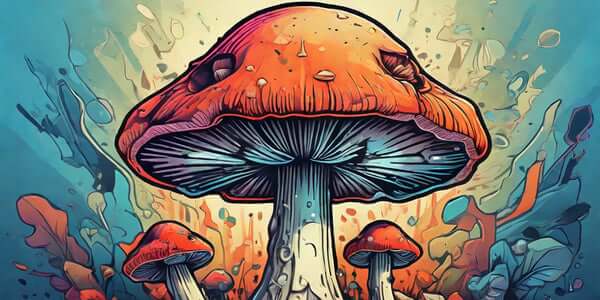
In contrast to the legal ambiguity surrounding magic mushrooms, liquid spores occupy a unique legal niche. Liquid spores, also known as spore syringes, contain the spores of psilocybin-containing mushrooms and are used for study purposes. While spores themselves do not contain the psychoactive compound psilocybin, they are the starting point for growing magic mushrooms.
The legality of liquid spores varies from one jurisdiction to another, making it an interesting and somewhat perplexing aspect of the mushroom world. In some places, such as the United States, the sale and possession of spore syringes are generally legal. This is because spores, by themselves, do not contain the psychoactive substance, and they are typically classified separately from the mushrooms they can potentially produce.
However, it is essential to understand that the legal status of spore syringes can be influenced by local and state laws, and in some instances, they may be considered paraphernalia if there is evidence of intent to cultivate magic mushrooms. Therefore, while the spores themselves are not illegal, their use or possession with the intent to cultivate magic mushrooms can lead to legal complications.
Why Are Liquid Spores Legal?
The legality of liquid spores, despite their potential connection to the cultivation of magic mushrooms, stems from a combination of factors:
- Psilocybin Content: Liquid spores themselves do not contain psilocybin, the psychoactive compound found in magic mushrooms. They are essentially the reproductive cells (spores) of the mushroom, without the psychoactive properties.
- Intent Matters: Laws often revolve around the intent of the individual. Possessing spore syringes for the purpose of cultivation is usually the point at which legality becomes questionable. As long as the intent remains cultivation-free, spore syringes tend to remain legal.
- Lack of Psychoactive Effect: The absence of psychoactive properties in spore syringes differentiates them from magic mushrooms. Laws typically focus on substances that can directly harm public safety, and spore syringes, lacking any psychoactive effect, may not be seen as a significant threat.
- Precedent and Interpretation: The legal status of spore syringes may also be influenced by past legal precedents and interpretations by law enforcement agencies and courts. Some regions have seen legal battles over the issue, leading to varying outcomes.
Legal Ambiguities and Challenges
While liquid spores themselves may be legally permissible in some jurisdictions, the issue becomes complex when intent to cultivate is involved. Law enforcement and the legal system can struggle to differentiate between individuals who possess spore syringes for legitimate scientific or educational purposes and those with the intent to cultivate magic mushrooms.
This legal ambiguity can lead to potential challenges and consequences for individuals who may inadvertently find themselves on the wrong side of the law. In some cases, individuals who are caught with spore syringes or equipment used for cultivation may face legal consequences, including charges related to drug possession or manufacturing.
The legal landscape is further complicated by the evolving nature of drug laws and the growing interest in the therapeutic potential of psychedelics, including psilocybin. As more research supports the potential medical benefits of substances found in magic mushrooms, there is increasing debate and reconsideration of existing drug policies.
Conclusion: Navigating the Legal Mushroom World
In the ever-evolving world of mushroom legality, it is crucial for individuals to be aware of the legal status of mushrooms, including magic mushrooms and liquid spores, in their specific jurisdiction. Laws vary widely from one place to another, and the interpretation of these laws can be influenced by local law enforcement and judicial decisions.
As of the last update in January 2022, magic mushrooms remain illegal at the federal level in the United States. However, the legal landscape is shifting as some states and cities are exploring decriminalization and even legalization for therapeutic use. The status of liquid spores also varies, with their legality often hinging on the intent of the individual and the interpretation of local laws.
Before engaging with mushrooms, whether for culinary, scientific, or recreational purposes, it is essential to research and understand the laws in your area. If you are considering working with liquid spores for cultivation, consult with legal experts or organizations knowledgeable about current laws and regulations.
Ultimately, the legal status of mushrooms and their derivatives is a dynamic issue. As research into the potential therapeutic benefits of psilocybin and other psychoactive substances continues to grow, we can expect further changes in the legal landscape. Stay informed, and be mindful of the laws in your jurisdiction to navigate the world of mushrooms responsibly and legally.
